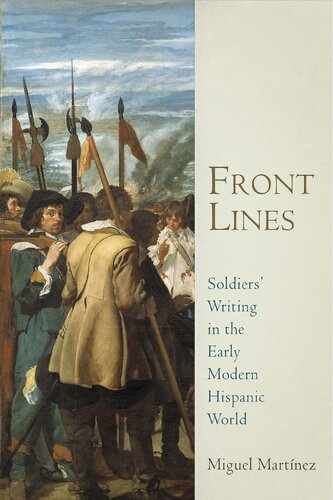

Most ebook files are in PDF format, so you can easily read them using various software such as Foxit Reader or directly on the Google Chrome browser.
Some ebook files are released by publishers in other formats such as .awz, .mobi, .epub, .fb2, etc. You may need to install specific software to read these formats on mobile/PC, such as Calibre.
Please read the tutorial at this link: https://ebookbell.com/faq
We offer FREE conversion to the popular formats you request; however, this may take some time. Therefore, right after payment, please email us, and we will try to provide the service as quickly as possible.
For some exceptional file formats or broken links (if any), please refrain from opening any disputes. Instead, email us first, and we will try to assist within a maximum of 6 hours.
EbookBell Team

4.1
80 reviewsIn Front Lines, Miguel Martínez documents the literary practices of imperial Spain's common soldiers. Against all odds, these Spanish soldiers produced, distributed, and consumed a remarkably innovative set of works on war that have been almost completely neglected in literary and historical scholarship. The soldiers of Italian garrisons and North African presidios, on colonial American frontiers and in the traveling military camps of northern Europe read and wrote epic poems, chronicles, ballads, pamphlets, and autobiographies—the stories of the very same wars in which they participated as rank-and-file fighters and witnesses. The vast network of agents and spaces articulated around the military institutions of an ever-expanding and struggling Spanish empire facilitated the global circulation of these textual materials, creating a soldierly republic of letters that bridged the Old and the many New Worlds of the sixteenth and seventeenth centuries.
Martínez asserts that these writing soldiers played a key role in the shaping of Renaissance literary culture, which for its part gave to them the language and forms with which to question received notions of the social logic of warfare, the ethics of violence, and the legitimacy of imperial aggression. Soldierly writing often voiced criticism of established hierarchies and exploitative working conditions, forging solidarities among the troops that often led to mutiny and massive desertion. It is the perspective of these soldiers that grounds Front Lines, a cultural history of Spain's imperial wars as told by the common men who fought them.